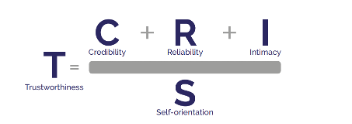Guest blog: Joanna Gaudoin from Inside Out Image
In the legal market, where every firm has roughly the same level of skill, ability and qualification (sorry, but in most cases, they do when comparing practice areas between firms), it’s the soft skills that enable firms to retain clients and attract new business – business development.
Clients and prospective clients want to feel they are going to be properly looked after. They expect good customer service, trustworthiness and a genuine interest in their business or other circumstances.
I regularly work with lawyers on these soft skills. They matter because business development is essential to the success of your firm – and understanding the skills needed for good business development is critical to getting it right.
I’ve seen that, while some people naturally have these essential skills, they can also be developed. This gives firms a broad base of business development skills that can help them to manage a successful strategy for growth.
It is important that individuals, in their different ways, are contributing to business development in terms of existing clients – more work and referrals, as well as bringing in new clients. Often, what happens is this responsibility sits with a small number of fee earners, which is a dangerous position to be in and will decrease the growth potential of a firm.
Another consideration is that more junior fee earners need to start playing a role early on so they build the skills over time and can get promoted to roles where business development is a key responsibility (not the only criterion of course) or in the case of firms that don’t consider these skills to promote someone (and yes many don’t!), it isn’t a shock when they get promoted, and the expectation is there.
What makes good business development?
For me, good business development is having a clear strategy that’s carried out in the right way. So, it’s a blend of understanding what business you want (part of a strategy and a plan that are both clearly communicated), as well as individuals having the relationship-building skills to bring the strategy and plan to life. When I come across firms with great business development in practice, these are the common attributes:
They know what sort of clients they want – this is the first pillar of good business development. Only by defining the types of clients you want can you focus on talking to the right people. Think about the work your firm is best placed to do, the financial value you need your clients to bring to the firm and the potentially powerful relationships that you want to build.
- They take time to understand their clients – this applies both to new target clients and to your existing client base. Taking the time to understand clients’ priorities and needs allows you and your team to anticipate the ways you can support them. This is particularly true for retaining clients and increasing their value – the more you understand them, the better placed you are to continue to help them.
- They focus on building trust – it’s vital that clients trust their lawyer. Clients often don’t have the technical or legislative knowledge and skill that your firm does – whether they are corporate or private clients - that’s why they engage you in the first place. They need to be confident in your ability both to handle the practical side of things, and to manage their business proactively. It can be helpful to consider the Trust Equation, which helps you to understand what your people as individuals might need to work on.
From D.H. Maister, C.H. Green and R.M. Galford, The Trusted Advisor, 20th anniversary edition (2021), and is based on four elements:
- Credibility
- Reliability
- Intimacy (being human)
- Self-orientation (not just focusing on your own goals)
You can see how this equation works in the diagram below.

- They communicate clearly – one of the most common complaints from clients is that they don’t hear from their lawyer. If a client feels they are continually chasing for information or progress, trust is diminished. Never underestimate the power of regular, open communication. Setting clear expectations upfront can help. Also remember that each client will have a preferred method of communication, so make sure you know what that is and use it. Establishing a communication ‘framework’ is key.
- They network – networking helps to establish personal relationships with potential clients. By seeing them regularly, listening to what they say about their issues and understanding where you may be able to support them, you put yourself in a strong position to encourage an enquiry. By building the relationship and being top of mind. The more people hear positively about you and your firm, the more likely they are to come to you for your professional help. Encourage your whole team to network where appropriate to promote your firm and support your business development strategy. This is more likely to happen if your lawyers have the skills and confidence to do this – it can feel daunting.
- They think broadly – it’s easy for law firms to focus on the initial matter in hand and ‘get the job done’. Instead, good business development looks at how else you can help your client base. It suggests things they may not have thought of, and it considers alternative ways of doing things. This helps clients to see your firm as a reliable and credible adviser, and also expands the breadth of support you can give. That may mean referring them to a different service provider in some instances, which also makes you look good, such as becoming a ‘Trusted advisor’.
The sooner individuals within your firm can start developing these skills, the more of an asset they will be. Someone with great technical skills and a track record for business development is a significant asset to your firm. Certainly, the more senior people get, the more these skills are needed – so it makes sense to spend some time getting this right.
Find out more about Joanna’s Business Development Accelerator for mid-size law firms to win more business from existing clients, get more referrals and win more new business.
Joanna Gaudoin, MD of Inside Out Image, specialises in helping professionals improve their performance and achieve their goals. Joanna regularly runs training for law firms and works with lawyers individually to help them engage effectively and build positive professional relationships in every professional scenario.
